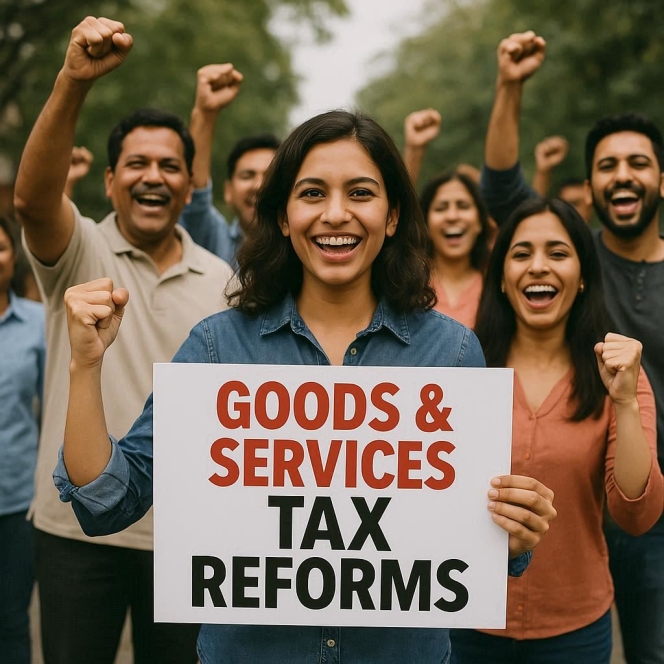
The Goods and Services Tax (GST) Council, on 3 September, provided a much-anticipated boost to the Indian automotive industry with a vast majority of segments now coming under a lower tax bracket.
For perspective, starting 22 September, two-wheelers (upto 350cc) and small cars (sub- 4-metre) will now attract a tax of 18 percent from the existing 28 percent. The reduction in GST for the passenger vehicle segment is for petrol, diesel (and hybrid vehicles) upto 1,200 cc and 1,500 cc respectively.
Similarly, three-wheelers, buses, trucks and ambulances will now see a GST rate of 18 percent from the existing 28 percent. Furthermore, the tractor segment, its components and tyres will now be placed in the lowest GST bracket of 5 percent, thus giving a huge boost to the agrarian economy.
Sharing their perspectives, the captains of the Indian automotive industry share their views.
Shailesh Chandra, President, SIAM: “Automobile Industry welcomes the Government’s decision to reduce the GST on vehicles to 18 percent and 40 percent, from earlier rates of 28 percent to 31 percent and 43 percent to 50 percent, respectively, especially in this festive season. This timely move is set to bring renewed cheer to consumers and inject fresh momentum into the Indian Automotive sector. Making vehicles more affordable, particularly in the entry-level segment; these announcements will significantly benefit first-time buyers and middle-income families, enabling broader access to personal mobility. We also thank the Government of India for continuing with GST rate of 5 percent on Electric Vehicles, which will help sustain the ongoing momentum towards sustainable mobility. Furthermore, the resolution of classification interpretations and the correction of the inverted duty structure will greatly streamline business processes across the automotive industry, supporting ease of doing business.”
“We are confident that the Government will also soon notify suitable mechanisms for the utilisation of compensation cess on unsold vehicles, ensuring a smooth and effective transition.”
Shradha Suri Marwah, President, ACMA: “On behalf of the auto component industry, I extend our deep gratitude to the Prime Minister, Narendra Modi, and the Finance Minister, Nirmala Sitharaman, for this historic reform. The rationalisation of GST to a uniform 18 percent across all auto components has been a long-standing recommendation of ACMA. This decisive step will curb the grey market, encourage the use of quality compliant components, ease compliance, and support MSMEs - thereby strengthening the global competitiveness and resilience of India’s USD 80.2 billion auto component industry.”
She added, “We also welcome the GST Council’s approval for faster export refund claims through ICEGATE for smaller exporters, which will help clear pending shipping bills and significantly ease liquidity constraints.”
C S Vigneshwar, President, FADA: "The 56th GST Council meeting marks a watershed moment for India’s automobile retail industry. FADA warmly welcomes the bold and progressive reforms which simplify the tax structure, lower rates for mass mobility, and bring consensus across all States. This is a decisive step that will boost affordability, spur demand, and make India’s mobility ecosystem stronger and more inclusive.
We thank the Prime Minister, Finance Minister and the GST Council for taking such a courageous decision with unanimity. As the country heads into the peak festive season, glitch-free and implementation will be the key to ensuring that the benefits seamlessly reach customers. One area that may needs earliest clarification is about levy and treatment of cess balances currently lying in dealers’ books, so that there is no ambiguity during transition. FADA remains committed to working closely with the Government and GST Council to make GST 2.0 a model reform — simple, transparent and growth-oriented for both industry and consumers."
Dr. Anish Shah, Group CEO & MD, Mahindra Group: “The next-generation GST reforms announced today mark a defining moment in India’s journey towards building a simpler, fairer, and more inclusive tax system. By moving to a streamlined two-rate structure and focusing on essentials that touch the lives of every citizen- from food, health, and insurance to agriculture and small businesses -the Government has reaffirmed its commitment to Ease of Living and Ease of Doing Business. The rationalisation measures will not only provide immediate relief to households but also strengthen key sectors such as automobiles, agriculture, healthcare, renewable energy, and MSMEs - all of which are vital to job creation and sustainable growth. The correction of long-pending inverted duty structures in critical industries is welcome.”
“At Mahindra, we view these reforms as transformative. They simplify compliance, expand affordability, and energise consumption, while enabling industry to invest with greater confidence. This bold step is in line with the vision articulated by the Prime Minister of building a citizen-centric, future-ready Bharat. It strengthens India’s economic foundations and will help drive the next phase of equitable and inclusive growth- journey towards Viksit Bharat @2047.”
Vinod Aggarwal, Vice Chairman EML and Managing Director & CEO, of VE Commercial Vehicles: “The GST reform announced yesterday is a very positive and pro-growth move that will immediately lift consumer sentiment and boost demand across a broad range of sectors. It truly a festive gift from the government to the nation and the automotive industry. We wholeheartedly applaud the Finance Minister and the GST Council for reducing GST on commercial vehicles – buses and trucks – from 28 percent to 18 percent. This will not only reduce logistics costs for the economy, but encourage customers to upgrade their fleets with modern, fuel efficient and safer trucks and buses. For buses, this will encourage much-needed fleet modernisation by state transport corporations and private operators, strengthening public mobility. For trucks, it will ease cost pressures for fleet operators and stimulate demand in logistics and freight, which are critical for India’s growth momentum. Together with the reduction in GST on auto components, the GST reforms reinforce the government’s commitment to enabling sustainable growth of the auto sector.”
Shenu Agarwal, MD & CEO, Ashok Leyland: “The GST rate reductions announced by the Finance Minister represent a forward-looking step towards simplifying India’s tax structure and accelerating economic momentum. The shift to a streamlined two-tier system of 5 percent and 18 percent will not only ease compliance but also bolster key sectors, uplift consumer sentiment, and reduce the financial burden on the common man. Crucially, this move will help mitigate the impact of the recently imposed US tariffs. The specific relief for the commercial vehicle industry is especially welcome. On one hand, it will spur freight traffic, and on the other, it will bring down the cost of buses and trucks, unleashing demand trajectory for commercial vehicles.”
Sudarshan Venu, Chairman, TVS Motor Company: "We applaud the government for taking consistent steps towards boosting growth and enhancing the growing middle class’s spending power - all towards realising PM’s vision of Viksit Bharat 2047. The GST tax cuts is a major move by the government to further turbocharge growth. It will significantly boost consumption across segments of the society. For our industry especially, it’s a welcome move as it will help two-wheelers become more accessible and also help those looking to upgrade."
Girish Wagh, Executive Director, Tata Motors: “Guided by the visionary leadership of the Prime Minister and the Finance Minister, the GST Council’s progressive decision to reduce the GST rate on commercial vehicles – trucks, buses and ambulances – to 18 percent marks a pivotal reform in India’s mobility landscape. This landmark reform will significantly accelerate fleet modernization, driving the adoption of safer, smarter and greener vehicles across India. By resolving the long-standing issue of inverted duty for transporters, it unlocks greater affordability and liquidity, strengthening the entire commercial mobility ecosystem. Further, the reduction in GST on hydrogen fuel cells to 5 percent is a forward-looking move that reinforces India’s commitment to clean energy and zero-emission mobility. This timely intervention is a catalyst for sustainable growth in logistics and public transport, a boost to economic momentum and a powerful enabler in India’s journey of inclusive growth and nation building.”
Saurabh Agarwal, Partner & Automotive Tax Leader, EY India: “The rationalisation of GST rates on automotive vehicles and parts is a truly welcome and significant development. By making vehicles more affordable across all segments, this move will not only boost consumer spending but also simplify complex classification disputes that have long burdened the industry. The discontinuance of the cess is a particularly pragmatic step, which will provide much-needed support to a sector that is a vital contributor to our nation's GDP. While this change is broadly positive, the automotive industry must now carefully reassess the financial impact of state incentives and subsidies, which are often linked to GST rates. This may necessitate a renegotiation with state governments to address potential changes in costs and clawback periods.”
“I am also encouraged by the pragmatic stance on anti-profiteering. A competitive market like ours naturally ensures that the benefits of tax cuts are passed on to consumers. Avoiding excessive administrative burdens will allow these crucial reforms to take root smoothly, without hindering the very progress they are designed to achieve. We are highly optimistic about this new chapter for the automotive sector under the GST framework.”
Rajesh Jejurikar, ED & CEO - Auto and Farm Sectors, Mahindra & Mahindra: “We applaud the Government for this landmark GST rationalisation, which will have a far-reaching positive impact across the automotive and farming sectors . The move makes tractors and farm machinery more affordable for farmers, reduces costs for commercial vehicles and improves accessibility for personal mobility through rationalisation of rates across all SUVs. Together, these measures are expected to stimulate demand, and drive inclusive growth across the entire ecosystem.”
“We also appreciate the continuation of the 5 percent GST rate on EVs, which is a critical enabler of India’s clean mobility vision. This measure will further accelerate the adoption of electric vehicles and reinforce India’s leadership in sustainable, green transportation.”
Arnab Banerjee, MD & CEO, CEAT: “We welcome the GST Council’s decision to rationalise tax rates in the tyre sector. The reduction of GST on new pneumatic tyres from 28 percent to 18 percent, and the further relief for tractor tyres and tubes to 5 percent, is a progressive step that will significantly benefit the industry. This reform will make tyres more affordable for customers across commercial, agricultural, and passenger vehicle segments, while also supporting rural mobility through lower input costs for farmers. By addressing a long-standing demand of the industry, the Council has not only provided a boost to the automotive ecosystem but also created room for greater formalisation, compliance, and sustainable growth in the sector.”
Venkatram Mamillapalle, Managing Director, Renault India: “We welcome the GST Council’s decision to rationalise rates into a two-slab structure of 5 percent and 18 percent, a landmark reform for the Indian economy. This is indeed an early festive gift from the Government, lifting consumer sentiment, easing household expenses, and strengthening confidence in long-term growth. For the automobile sector, the move is transformative. The GST reduction on the entry level car segment (petrol below 1200 cc and diesel below 1500 cc) from 28 percent to 18 percent, and a uniform rate for auto components at 18 percent, make personal mobility significantly more affordable for the masses. The rationalised GST will ease household expenses, fuel consumption and create a multiplier effect on long-term economic growth. With reduced taxes on tractors, agri-inputs and farm equipment, the GST reform will boost rural demand, strengthen agri-linked enterprises, and create new growth avenues in semi-urban and rural India. This will unlock fresh demand in Tier 2, Tier 3 and rural markets where improving farm incomes are driving aspirations for car ownership. Renault is well positioned to leverage this shift and we believe the reform will accelerate rural and urban demand alike, boost manufacturing and contribute strongly to India’s economic momentum.”
Ajinkya Firodia, Vice Chairman, Kinetic India: “We welcome this very positive and timely move by the Government. The GST rate cut will give a strong boost to the economy in an unprecedented manner. Essentials, including food, automobiles, and several other key sectors, have been rightly covered under this decision. This step aligns with the vision of making India self-sufficient—an Atmanirbhar Bharat. It will lower interest rates, facilitate employment generation, and encourage capacity augmentation across industries. "
“Our only humble request is that the electric vehicle (EV) sector continues to be kept in special focus. To ensure higher penetration of EVs, especially two-wheelers, we urge the continuation of supportive schemes so that this transformative sector does not face any adverse impact. EV adoption is critical for India’s sustainable growth and competitiveness."
Deepak Jain, Chairman, Lumax Group: "We welcome the Government’s decision on GST reforms and rationalisation. By lowering GST to 18 percent across all components, will reduce input costs, creating a stronger foundation for innovation, localisation and long-term competitiveness. Importantly, consumers will benefit from more affordable vehicles and reliable spare parts in the aftermarket, improving both safety and ownership experience. The reforms, well timed, will also bring optimism ahead of the festive season, with demand expected to rise across entry-level passenger vehicles and two-wheelers.”
Jitin Makkar, Senior Vice President and Group Head, Corporate Sector Ratings, ICRA: “The GST rate cut is a welcome relief for the automobile sector, which has been grappling with sluggish demand (from both domestic and exports) and inventory build-up pressures. Lower tax incidence directly translates into reduced on-road prices, making vehicles more affordable for consumers. This is particularly significant for entry-level cars and two-wheelers, where price sensitivity is high. The move is expected to revive showroom footfalls, accelerate retail sales, and help OEMs clear existing stock. Additionally, it would have a positive spillover effect on ancillary industries such as auto components and financing. The organised auto aftermarket segment, comprising spare parts, components, batteries, tyres, lubricants, repairs etc., will also benefit as the pricing differential with the unorganised segment narrows. While the long-term trends will still hinge on income sentiment and fuel prices, the immediate effect is likely to be a positive uptick in demand, particularly in the entry and the mid-price automobile segments.”
Santosh Iyer, Managing Director & CEO, Mercedes-Benz India: “Government listened to the automotive industry’s long standing wish list of rationalising GST rates. This GST revision is the step in right direction, is progressive and will induce the much-needed impetus by boosting consumption and bring momentum to the automotive industry which essentially remains the pulse of the Indian economy. We are thankful to the Government for keeping the GST rate for BEVs unchanged, ensuring faster transition to a decarbonised future.”
Udit Sheth - Vice Chairman, Setco Automotive: “The reduction in GST from 28 percent to 18 percent on auto components is a welcome step that will provide much-needed relief to both the auto industry and consumers and have a great impact of Total Cost of Ownership. For us at Setco, it will not only ease cost pressures but also stimulate demand, creating a positive ripple effect across the entire supply chain. We see this move as a catalyst for growth in the commercial vehicle sector, and we are optimistic about the momentum it can generate for the broader economy.”
Unsoo Kim, Managing Director, Hyundai Motor India: “We at Hyundai Motor India (HMIL) welcome the landmark GST reforms announced by the Government of India. This revolutionary step will provide a strong impetus to the Indian economy, enhance buoyancy and further strengthen consumer confidence. By reducing the tax burden on essential goods, the Government has laid the foundation for inclusive growth and a robust, consumption-led economy. The GST overhaul will directly benefit the automotive sector. The announced reforms align seamlessly with the Government’s commitment to Viksit Bharat and the Make in India initiative, encouraging domestic manufacturing and boosting demand across both urban and rural markets. Notably, 60 percent of our ICE portfolio will now fall under the 18 percent slab rate, with the remainder at 40 percent. HMIL remains committed to supporting the Government of India’s vision and contributing meaningfully to the nation’s journey toward becoming a global manufacturing powerhouse.”
Divya Chandra, MD, Atul Greentech: "The government’s move to reduce GST on three-wheelers is a significant step for the mobility ecosystem, given that this segment is the lifeline of India’s last-mile connectivity. With over 6 lakh three-wheelers sold annually, affordability remains the most critical factor for drivers and fleet operators. While the rate cut directly benefits ICE and CNG three-wheelers, we believe it also has a catalytic role in shaping the transition to EVs. As cost pressures ease for operators, it creates room for a more balanced evaluation between conventional and electric three-wheelers. We, at Atul Greentech, are confident that this policy shift, coupled with rising awareness around total cost of ownership and sustainability, will accelerate India’s journey towards cleaner mobility solutions."
Narinder Mittal, President & Managing Director, CNH India: “We welcome the government’s decision to reduce GST on farm equipment, related components and tyres to 5 percent. These GST reforms will accelerate mechanisation by making tractors, harvesters, balers and implements more affordable, while lowering overall operating costs for farmers. This empowers industry players to address labour shortages, enhance farmer’s productivity, and promote sustainable practices. For CNH, it provides the right environment to further localise, innovate and expand our offerings, strengthening India’s role as a global CNH hub for farm machinery. As a leader in the harvesting and post harvesting segment, we see this reform as particularly timely ahead of the harvesting season, as lower costs will enable more farmers to adopt baling solutions, reducing crop residue burning and its impact on the environment.











Comments (0)
ADD COMMENT